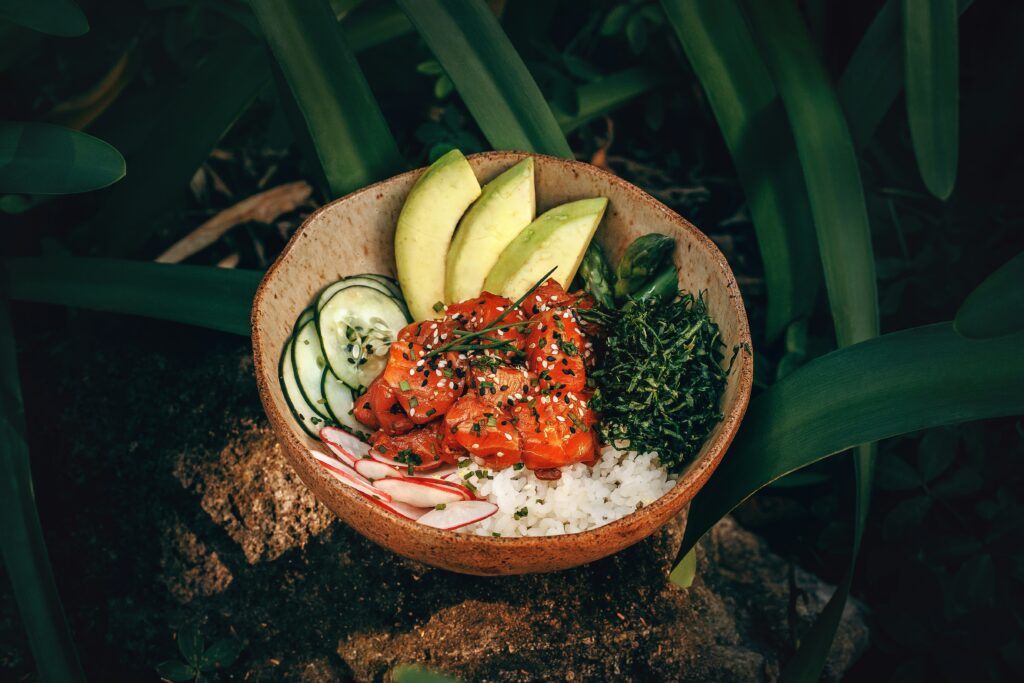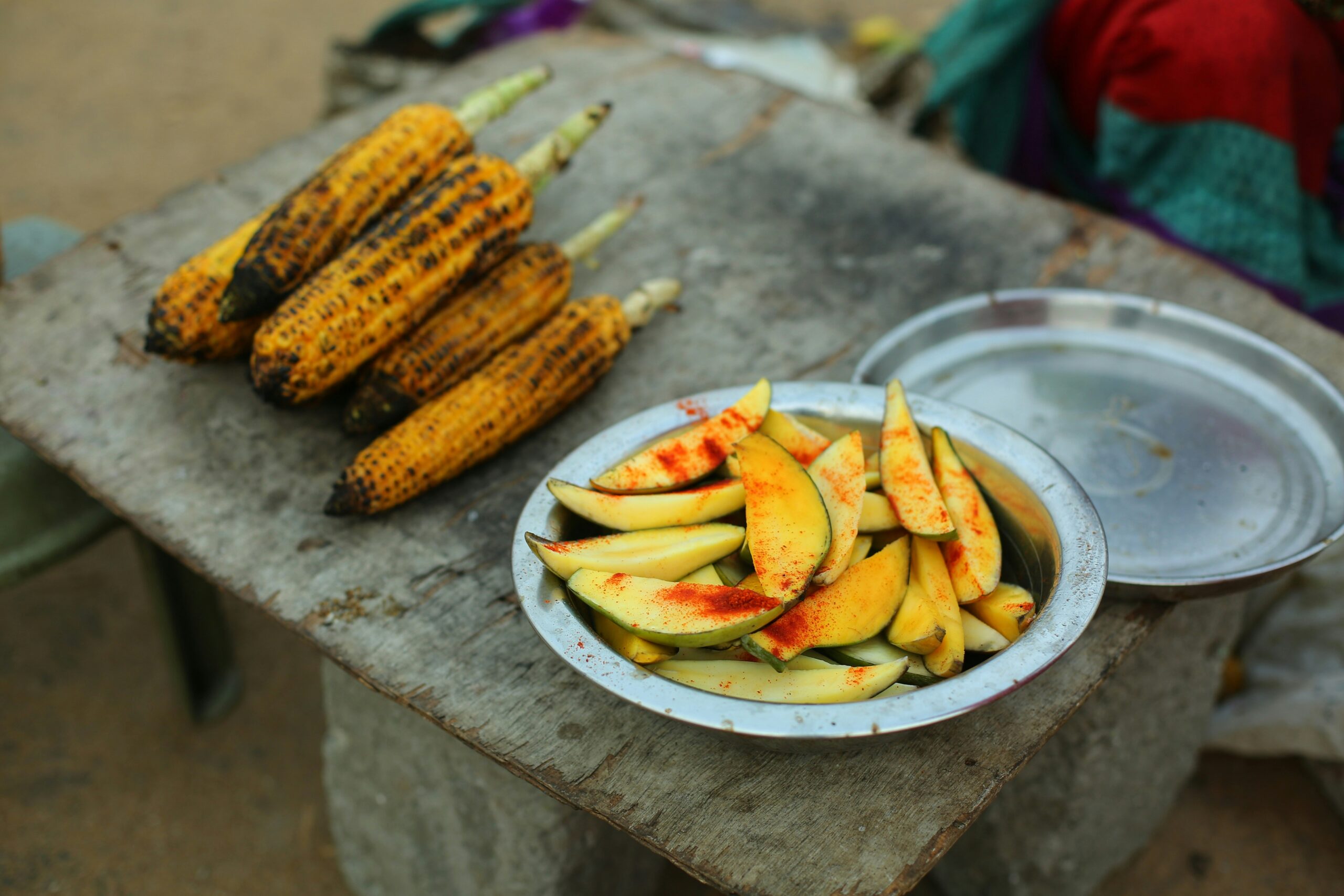Vegetarian Safari in Africa: Your Ultimate Guide
Going on a vegetarian safari in Africa is a unique adventure. The continent has a wide range of tasty plant-based foods.
Learn how to find great vegetarian food on your trip. You’ll also dive into Africa‘s rich culture.
This guide will help you plan your trip. You’ll learn about African vegetarian recipes and more.
The Reality of Being a Vegetarian on an African Safari
Are you curious about eating on an African safari as a vegetarian? The good news is that it’s getting easier. More tour operators and lodges now offer plant-based options.
But, there are some challenges. These come from common myths about African food and the usual focus on meat.
Common Misconceptions About African Cuisine
Many think African food is all about meat. But, that’s not true. There are many tasty vegetarian dishes too.
African food is very diverse. Each area has its own vegetarian specialties. For example, North Africa is famous for its vegetable and grain dishes like tagines and couscous.
Why Traditional Safaris Typically Feature Meat-Heavy Meals
Safaris used to be for hunters and adventurers. Meat was a big part of their diet. So, safari food was mostly meat-based.
But, with more people choosing vegetarian or vegan diets, safari menus are changing. Now, there are more options for everyone.
Let’s look at the difference between old safari food and new vegetarian choices:
| Cuisine Aspect | Traditional Safari Cuisine | Emerging Vegetarian Options |
|---|---|---|
| Main Ingredients | Meat (game meats, beef, chicken) | Plant-based proteins, local vegetables, grains |
| Dish Examples | Bush meat stews, grilled meats | Vegetable tagines, quinoa salads, lentil stews |
| Dining Experience | Often centered around meat-centric meals | Increasingly diverse, with vegetarian-focused meals |
Knowing these points helps you get ready for your vegetarian safari in Africa. You can enjoy the local food and stick to your diet.
Planning Your Vegetarian Guide to Safari in Africa
To enjoy your African safari as a vegetarian, planning is key. You need to know how to find vegetarian food in the wild.

How to Research and Select Vegetarian-Friendly Tour Operators
Finding the right tour operator is important for a great vegetarian safari. Look for those that offer vegetarian and vegan options. Check their websites, read reviews, and ask about their meal plans.
- Check for tour operators that specialize in vegetarian or vegan safaris.
- Read reviews from other vegetarian travelers to gauge their experiences.
- Contact the tour operator directly to inquire about their meal plans and ability to accommodate dietary needs.
Effectively Communicating Your Dietary Requirements
After picking a tour operator, tell them about your dietary needs clearly. Use translation cards or write down your needs in the local language. This helps your hosts understand what you can and can’t eat.
| Dietary Need | Local Language Explanation |
|---|---|
| Vegetarian | I do not eat meat or fish |
| Vegan | I do not eat any animal products, including dairy and eggs |
Essential Items to Pack for a Vegetarian Safari Experience
Bringing the right items can enhance your vegetarian safari. Pack supplements or specialty foods that are hard to find in Africa.
- Non-perishable vegetarian snacks.
- Vitamin supplements if necessary.
- Specialty foods that are hard to find in Africa.
Top African Destinations for Vegetarian Safari Enthuasiasts
The African continent is full of safari spots perfect for vegetarians. You’ll find a mix of culture, wildlife, and tasty local dishes. Here are the top places for a vegetarian safari adventure.

South Africa: Premier Destination for Diverse Vegetarian Options
South Africa is a top spot for vegetarians on safari. It has a lively food scene with many vegetarian choices. You can find vegetarian meals in cities like Cape Town and Johannesburg.
Many safari lodges in South Africa also offer vegetarian menus. They use local produce to create delicious dishes.
Tanzania: Balancing Serengeti Wildlife with Plant-Based Dining
Tanzania is known for its amazing safari experiences, like the Serengeti National Park. While Tanzanian food often includes meat, many places now serve vegetarian dishes. You can try plant-based versions of local favorites like ugali and vegetable stews.
Some tour operators even offer cooking classes. You can learn to make traditional Tanzanian vegetarian dishes.
Kenya: Masai Mara Experiences with Vegetarian Adaptations
Kenya’s Masai Mara National Reserve is famous for its wildlife and the wildebeest migration. Many lodges in the Masai Mara offer vegetarian meals. They adapt traditional Kenyan dishes to fit plant-based diets.
You can enjoy meals with fresh vegetables, fruits, and grains. These are all sourced locally. Some lodges also let you help with community projects, like vegetable gardens.
Botswana: Okavango Delta Lodges with Sustainable Vegetarian Menus
The Okavango Delta in Botswana is a stunning safari spot. Many lodges here focus on sustainable tourism and offer vegetarian menus. They use local and seasonal produce for their dishes.
These meals are not only tasty but also support the local economy and sustainable farming. You can enjoy dishes made from the lodges’ gardens or local farmers.
These destinations offer a great mix of wildlife, culture, and food for vegetarian travelers. By picking the right tour operators and lodges, you can have a fulfilling and tasty vegetarian safari in Africa.
How to Choose Vegetarian-Friendly Safari Accommodations
Choosing the right place to stay is key for a great vegetarian safari. Your lodge or eco-camp can make your trip special. It offers more than just a place to sleep; it connects you with local culture and food.
Think about what you want from your stay. Do you want luxury, an eco-friendly spot, or something affordable? Each type has its own perks and food experiences.
Luxury Safari Lodges with Specialized Vegetarian Cuisine
Luxury lodges focus on food, serving gourmet meals for all diets, including vegetarian. Their chefs use local ingredients to make tasty, custom dishes.
Examples of Luxury Lodges:
- Singita Ebony Lodge in South Africa, known for its fine dining and personalized service.
- Mahali Mzuri in Kenya, offers a modern twist on traditional Kenyan dishes.
Eco-Camps with Farm-to-Table Vegetarian Meals
Eco-camps are great for those who love nature and local food. They often grow their own food, making meals fresh and healthy.
Notable Eco-Camps:
- Koko Loko Eco Lodge in Rwanda, focuses on organic farming and local recipes.
- Chakatchakana Camp in Zambia, provides a peaceful setting and healthy vegetarian meals.
Budget-Friendly Options for Vegetarian Travelers
Even on a tight budget, you can find vegetarian-friendly places. Many lodges and guesthouses are willing to meet your dietary needs if you ask ahead of time.
Tips for Budget Travelers:
- Look for lodges that mention vegetarian options on their websites or reviews.
- Call your place ahead to talk about your food needs.
Here’s a look at what you might find in different places:
| Accommodation Type | Dining Experience | Price Range |
|---|---|---|
| Luxury Safari Lodges | Gourmet, tailored meals | $$$ |
| Eco-Camps | Farm-to-table, sustainable cuisine | $$ |
| Budget-Friendly Lodges | Simple, accommodating meals | $ |
By picking the right place, you can have a eco-conscious dining experience on safari. Whether you choose luxury, an eco-camp, or something more affordable, your vegetarian safari will be unforgettable.
Day-to-Day Meal Planning During Your African Safari
Learn how to enjoy a tasty and healthy vegetarian diet on your African safari. Planning your meals is key to a great safari. As a vegetarian, you’ll want to make sure your meals are ready for you all day.
Morning Nutrition: Vegetarian Breakfast Options
Starting your day with a good breakfast is important for a fun safari. Many safari lodges and tour operators now have lots of vegetarian breakfast choices. These include:
- Fresh fruits and yogurts
- Oatmeal with nuts and dried fruits
- Vegetarian omelets and whole-grain toast
- Smoothies made with local fruits and vegetables
When you book your safari, ask about breakfast options. This way, you’ll know they fit your diet.
On-the-Go: Vegetarian Packed Lunches and Snacks for Game Drives
For game drives and trips, the right snacks are key. Many tour operators offer packed lunches for vegetarians. These might include:
| Snack Type | Description |
|---|---|
| Sandwiches | Made with whole-grain bread and filled with vegetarian options like avocado, hummus, or cheese |
| Fruit and Cheese Platter | A selection of local fruits accompanied by cheese or nuts |
| Energy Bars | Homemade or store-bought bars made with wholesome ingredients |
It’s also smart to bring your own snacks like nuts, dried fruits, or energy balls. This helps keep your energy up all day.
Evening Dining: Navigating Communal Meals as a Vegetarian
Dining together is a big part of the safari. To handle these meals as a vegetarian, follow these tips:
- Tell your tour operator and lodge staff about your diet needs early on.
- Be ready to suggest or help with meal planning if you can.
- Try the local vegetarian dishes, which are often very tasty.
By being open and proactive about your diet, you can have a great vegetarian experience on your African safari.
Authentic African Vegetarian Recipes to Discover on Safari
African cuisine is full of vegetarian delights. From North Africa’s tagines to Southern Africa’s stews, there’s much to explore. You’ll find a variety of plant-based dishes that show Africa’s rich food culture.
North African Vegetarian Treasures
North Africa’s vegetarian food is known for its spices and herbs. The Moroccan vegetable tagine is a must-try. It’s a slow-cooked stew with vegetables, fruits, and spices in a clay pot.
You’ll also find Chakchouka, a dish with bell peppers, tomatoes, onions, and spices. It’s often served with bread or couscous.
East African Plant-Based Staples
In East Africa, like Ethiopia and Kenya, you’ll find nourishing plant-based foods. Ethiopian injera, a sourdough flatbread, is a key part of many dishes. It goes well with misir wot (red lentil stew) and gomen be sega (collard greens).
Kenyan cuisine also has vegetarian favorites. Try kunde (bean stew) and viazi (mashed potatoes with vegetables).
Southern African Vegetarian Comfort Foods
Southern Africa, including South Africa and Botswana, has comforting vegetarian dishes. Bobotie is a South African favorite. It’s a mix of vegetables, lentils, and spices topped with eggs.
In Botswana, enjoy seswaa, a dish with mashed beans or cowpeas. It’s often served with sadza (maize meal porridge).
West African Vegetarian Specialties
West Africa, like Nigeria and Ghana, has a rich food culture. Jollof rice is a one-pot dish with rice, tomatoes, and spices. It’s often served with vegetables or legumes.
Ghanaian cuisine also has groundnut soup and akple, a fermented corn dough. It’s served with soups or stews.
On your African safari, these vegetarian recipes will delight your taste buds. They offer a deep look into Africa’s diverse food traditions. By trying these dishes, you support sustainable dining in African safaris and help preserve Africa’s food heritage.
Immersive Cultural Experiences for Vegetarians on Safari
Exploring local cultures is key to any safari. As a vegetarian, you can dive into Africa’s rich culinary world. You’ll get to visit markets and take cooking classes, all while connecting with the community.

Exploring Local Markets for Indigenous Produce
Local markets offer a taste of Africa’s sights, sounds, and flavors. You’ll see stalls with fresh fruits, veggies, and grains from the area. You might find:
- Mangoes and papayas in East Africa
- Baobab fruit in Southern Africa
- Yams and plantains in West Africa
These markets let you taste local flavors and see how locals live.
Hands-On Vegetarian Cooking Classes with Local Chefs
Vegetarian cooking classes are a great way to learn about local food. Many lodges and tour operators offer these classes. Local chefs will teach you how to make traditional vegetarian dishes.
You’ll learn about ingredients, cooking techniques, and the dishes’ cultural importance. Some dishes you might make include:
- Vegetarian tagine in North Africa
- Ugali with vegetable stew in East Africa
- Stuffed bell peppers in South Africa
Participating in Community Dining as a Vegetarian Traveler
Community dining is big in Africa, and as a vegetarian, you can join in. Sharing meals with locals is a great way to connect and learn about their culture.
When dining with communities, remember to:
- Respect local customs and traditions
- Clearly communicate your dietary needs
- Be open to trying new foods
By embracing these experiences, you’ll make your safari better. You’ll also help the local economy and build strong connections with the people you meet.
Essential Strategies for Maintaining Your Vegetarian Diet on Safari
Keeping a vegetarian diet on an African safari can be tough. But with the right strategies, you can have a great time without meat. It’s important to be ready for the unique food challenges of exploring remote African landscapes.
Creating Translation Cards to Explain Vegetarianism
Translation cards are a great way to share your dietary needs. They help safari staff and local vendors understand you. For example, in Swahili, “Ninapendelea kula mboga mboga tu” means “I prefer to eat only vegetables.”
Make sure your cards clearly state you’re a vegetarian and what foods you avoid. This can prevent mistakes and ensure you get the right meals.
Adapting to Limited Food Options in Remote Safari Locations
Remote safari spots often have few food choices. It’s smart to learn about local vegetarian foods before you go. For instance, ugali in Kenya or injera in Ethiopia are tasty and plant-based.
Pack non-perishable snacks like nuts or energy bars for long drives or when food is hard to find. Also, ask your guides or lodge staff for vegetarian dish tips.
Nutrition Tips for Staying Energized Throughout Your Safari
Staying energized is key on safari, which can be tiring. Eat foods rich in nutrients like legumes, whole grains, and colorful veggies. These keep you going and are good for your health.
Drink lots of water to stay hydrated. Avoid too much caffeine and alcohol. Bring a water filter or purification tablets if you’re worried about water quality.
With these tips, you can have a fulfilling meat-free safari experience. Being prepared and flexible are essential for enjoying your vegetarian diet amidst Africa’s wildlife and landscapes.
Aligning Ethical Wildlife Viewing with Sustainable Eating Practices
It’s easy to enjoy both ethical wildlife viewing and sustainable eating on an African safari. As a vegetarian, you can help protect wildlife and support green tourism.
Safari Companies That Prioritize Both Conservation and Vegetarian Dining
Many safari companies now offer vegetarian safari experiences. These experiences are tasty and help protect Africa’s wildlife. They know that eco-conscious dining on safari makes the trip better.
- Lodges that source their produce from local organic farms
- Tour operators that partner with conservation organizations
- Safari camps that implement waste reduction and recycling programs
How Your Plant-Based Choices Support African Conservation Efforts
Choosing a vegetarian safari does more than just suit your taste. It helps the environment and local people. By picking plant-based meals, you support farming that’s good for the planet and cuts down on animal product use.
| Conservation Impact | How Vegetarian Choices Help |
|---|---|
| Reducing Carbon Footprint | Plant-based meals are often better for the planet than meat. |
| Supporting Local Farmers | Buying local produce helps small farmers and grows communities. |
| Promoting Biodiversity | Vegetarian farming helps keep nature’s variety alive. |
When planning your African safari, think about how your food choices matter. By choosing eco-conscious dining on safari, you make your trip better and help protect Africa’s beauty for the future.
Conclusion: Embracing the Complete Safari Experience as a Vegetarian
Being a vegetarian on an African safari is not only possible but also rewarding. By picking safari tours with vegetarian options, you can have a full and meaningful safari. It fits your diet and values perfectly.
Choosing sustainable dining in African safaris lets you enjoy Africa’s rich tastes and culture. You also help local communities and conservation. You can try authentic African vegetarian dishes, take cooking classes, and visit local markets.
With some planning, you can have a great vegetarian safari. Start planning your African trip now. Get ready to enjoy Africa’s flavors and support eco-friendly tourism.




